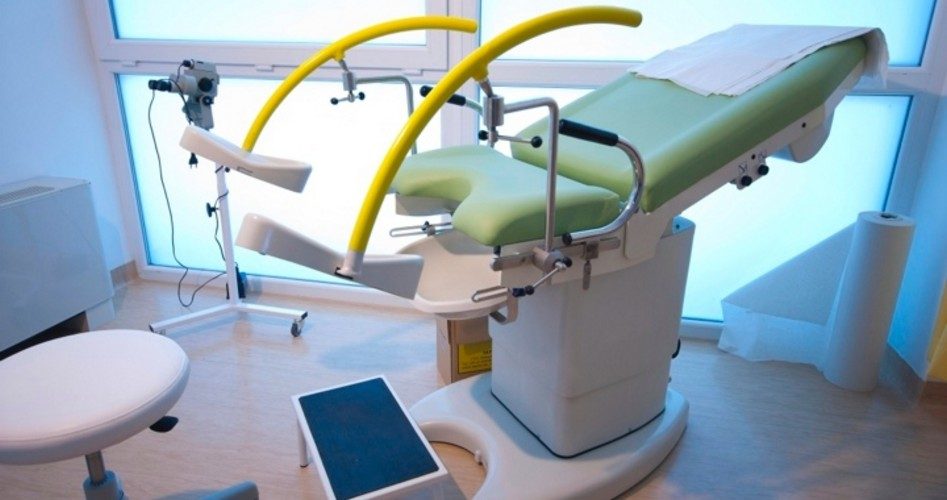
The UK’s Supreme Court handed down a decision on December 17 that overturned a previous ruling made in favor of two midwives in greater Glasgow, Scotland, who had objected to being forced to supervise abortions in the Southern General Hospital in Glasgow where both worked as labor ward coordinators.
The midwives, Mary Doogan and Concepta Wood, filed a motion in January at the Court of Session in Edinburgh against their employer, NHS Greater Glasgow and Clyde, challenging whether NHS GGC could require them to delegate, supervise, or support staff in “the processes of medical termination of pregnancy and feticide.”
The women said in their petition that they are practicing Roman Catholics and: “They hold a religious belief that all human life is sacred from the moment of conception and that termination of pregnancy is a grave offence against human life.” They also stated that their involvement in the process of termination is wrongful and an offence against God and the teachings of their church.
The two women went to court after NHS GGC rejected their initial application to be removed from abortion-related duties, asserting that the Abortion Act of 1967 did not confer on the midwives any right to refuse to delegate, support, or supervise staff providing nursing care for women going through abortions. The Abortion Act of 1967 was an Act of Parliament in the U.K. legalizing abortions by registered practitioners, and regulating the free provision of abortion through the National Health (NHS). It applies to all of the United Kingdom except for Northern Ireland.
In February, Lady Smith, a judge at the Court of Session, ruled against the women, stating: “Nothing they have to do as part of their duties terminates a woman’s pregnancy. They are sufficiently removed from direct involvement as, it seems to me, to afford appropriate respect for and accommodation of their beliefs.”
Following the judgment, Doogan and Wood launched an appeal. Their counsel, Gerry Moynihan QC, declared: “The administrative convenience of the health board is irrelevant because the right is a balance between facilitating abortion while respecting the genuine conscientious objection of medical, nursing and ancillary staff.”
The appeals court (known as the Inner House) affirmed the midwives’ appeal, with judges Lady Dorrian, sitting with Lord Mackay of Drumadoon and Lord McEwan, issuing a ruling (called a “declarator”) in their favor. The ruling said: “In our view the right of conscientious objection extends not only to the actual medical or surgical termination but to the whole process of treatment given for that purpose.”
The Opinion of the Court, delivered by Lady Dorrian, expanded upon the decision:
The right is given because it is recognized that the process of abortion is felt by many people to be morally repugnant. As Lord Diplock observed in the RCN case, it is a matter on which many people have strong moral and religious convictions, and the right of conscientious objection is given out of respect for those convictions and not for any other reason. It is in keeping with the reason for the exemption that the wide interpretation which we favor should be given to it. It is consistent with the reasoning which allowed such an objection in the first place that it should extend to any involvement in the process of treatment, the object of which is to terminate a pregnancy.
Following the ruling, Doogan and Wood said they were “absolutely delighted.”
However, there victory would be short lived. The Greater Glasgow Health Board appealed the decision to the U.K.’s Supreme Court, which unanimously supported the appeal and set aside the decision made in the Inner House.
The ruling cited The Abortion Act of 1967, and noted that the act included a clause protecting the right of conscientious objection to taking part in an abortion and that “This case is about the precise scope of that right.”
The ruling even acknowledged that the act contained a provision that “no person shall be under any duty, whether by contract or by any statutory or other legal requirement, to participate in any treatment authorized by this Act to which he has a conscientious objection” with the qualification: “Provided that in any legal proceedings the burden of proof of conscientious objection shall rest on the person claiming to rely on it.”
In the end, however, the court decided that the duties of the midwives did not constitute participation in abortion, but were merely associated with it, and therefore not exempt for reasons of conscientious objection. Lady Hale, deputy president of the Supreme Court, said::
The managerial and supervisory tasks carried out by the labor ward co-ordinators are closer to … [the roles of hospital managers, caterers, or cleaners] than they are to the role of providing the treatment which brings about the termination of the pregnancy. “Participate” in my view means taking part in a “hands-on” capacity.
The high court took a different view and, therefore, overturned Edinburgh’s Court of Session judges, who had ruled that the right of conscientious objection “extends not only to the actual medical or surgical termination but to the whole process of treatment given for that purpose.”
Doogan and Wood said they were “saddened and extremely disappointed” with the Supreme Court’s decision.
The two midwives said in a statement quoted by Britain’s Telegraph and the BBC:
Despite it having been recognized that the number of abortions on the labor ward at our hospital is in fact a tiny percentage of the workload, which in turn could allow the accommodation of conscientious objection with minimal effort, this judgment, with its constraints and narrow interpretation, has resulted in the provision of a conscience clause which now in practice is meaningless for senior midwives on a labor ward.
Archbishop Philip Tartaglia of Glasgow expressed profound disappointment with the court’s ruling, saying in a statement quoted by The Guardian (U.K.):
I am dismayed and disappointed at this decision of the Supreme Court which fundamentally impacts on the right of every citizen in this country to follow their conscience in the workplace.
This was never a case about the rights and wrongs of abortion. Nor was it a case about religion. Rather it was a case that centered on the right of ordinary citizens to have their conscience respected in society and at work. All of society is a poorer, less respectful and less tolerant place as a result of this decision.
Though this case takes place in Britain, it has similarities with many issues in the United States involving moral concepts such as the right to life and government disregarding its citizens’ freedom of conscience.
The similarities between the U.K. high court’s use of the Abortion Act of 1967 to extend mandatory access to abortion and the U.S. Supreme Court’s disallowing of most state restrictions on abortion in the United States based on the Roe v. Wade and Doe v. Bolton decisions naturally invite comparison. Also at stake is the concept of state sovereignty, as the theoretically sovereign American states and the once-sovereign country of Scotland (which has limited self-government) are subject to high-court rulings from Washington and London respectively. (The Scots missed a valuable opportunity to achieve full sovereignty when they rejected a referendum on independence last September 18, and American. states have long frittered away their sovereignty by capitulating to overbearing federal usurpations that are in clear violation of the Tenth Amendment.)
The decision in this U.K. case also shares similarities with the Obama administration’s attack on the moral consciences of Americans by requiring employers to pay for their employees’ contraceptives, including those that act as abortifacients, under ObamaCare’s contraceptive mandate.
However, there are still rays of hope in the United States, as indicated by the Supreme Court’s 5-4 decision on June 30 in favor of two family-held companies — Hobby Lobby and Conestoga Wood Specialties — both of which had said that the contraceptive mandate would represent an unacceptable moral obstacle to their business.
The majority opinion cited the Religious Freedom Restoration Act, asserting that the federal Department of Health and Human Services cannot force owners of Christian-based businesses to violate their convictions to adhere to the mandate.
It is nevertheless worthwhile for Americans to pay attention to what is occurring in other nominally Christian nations across the Atlantic, as a harbinger of what can happen here if people of faith are not vigilant.


